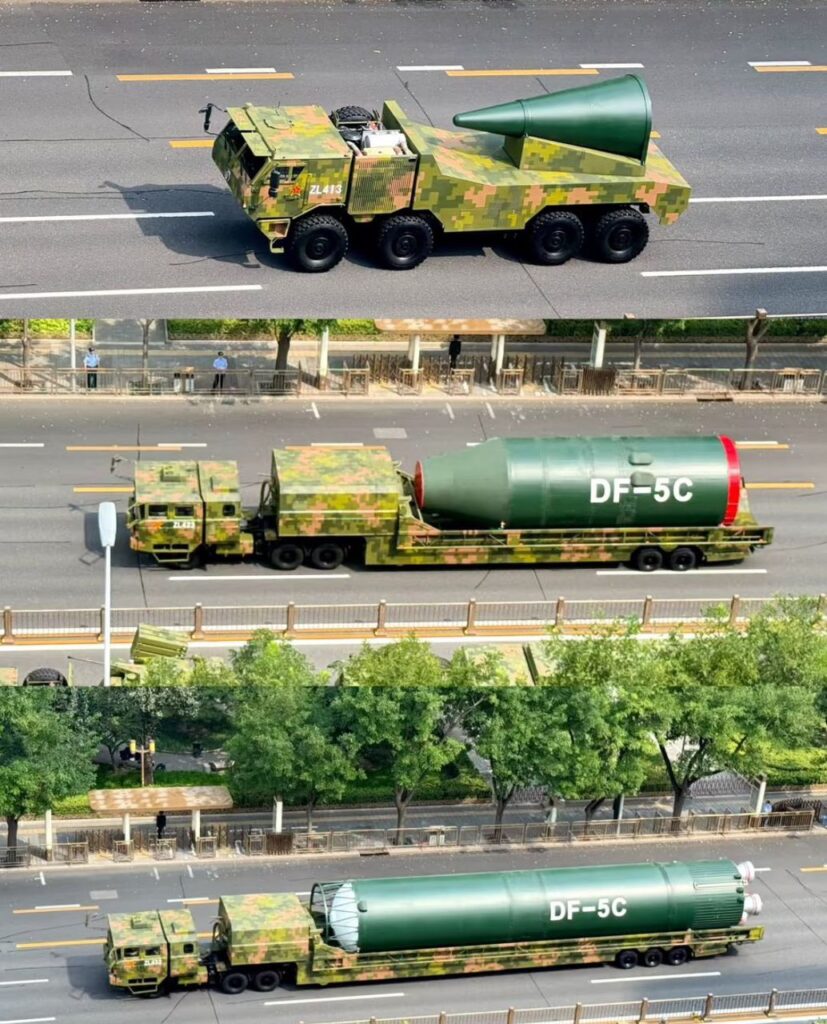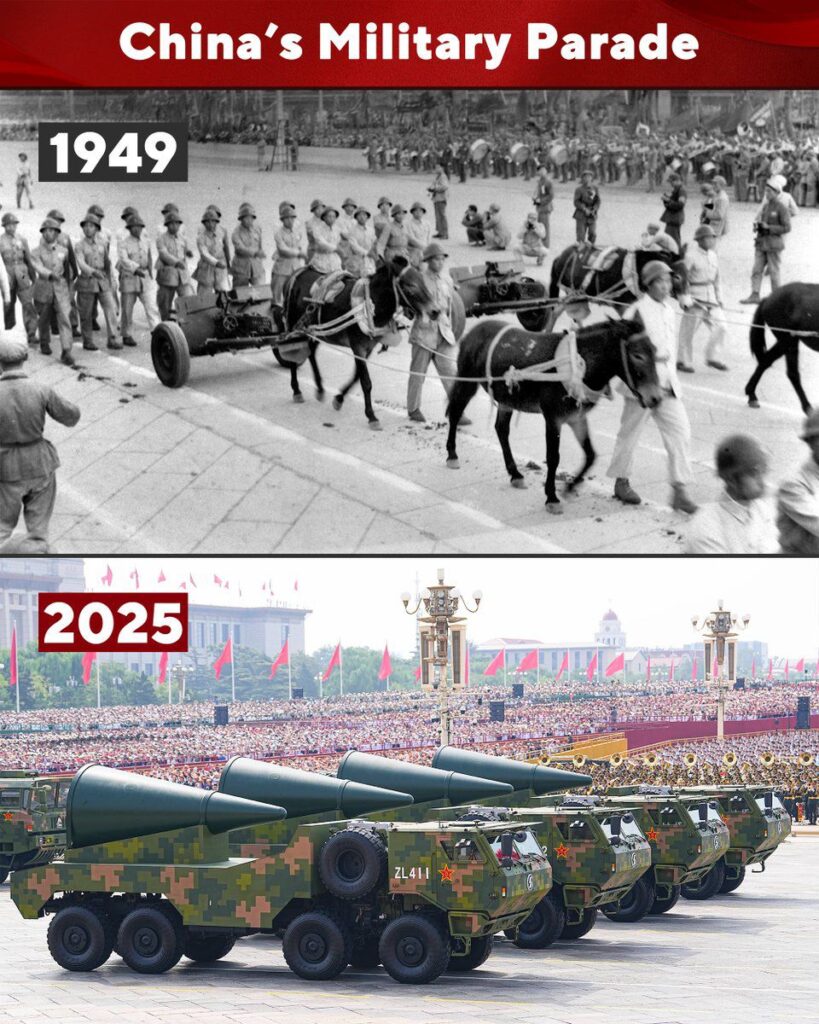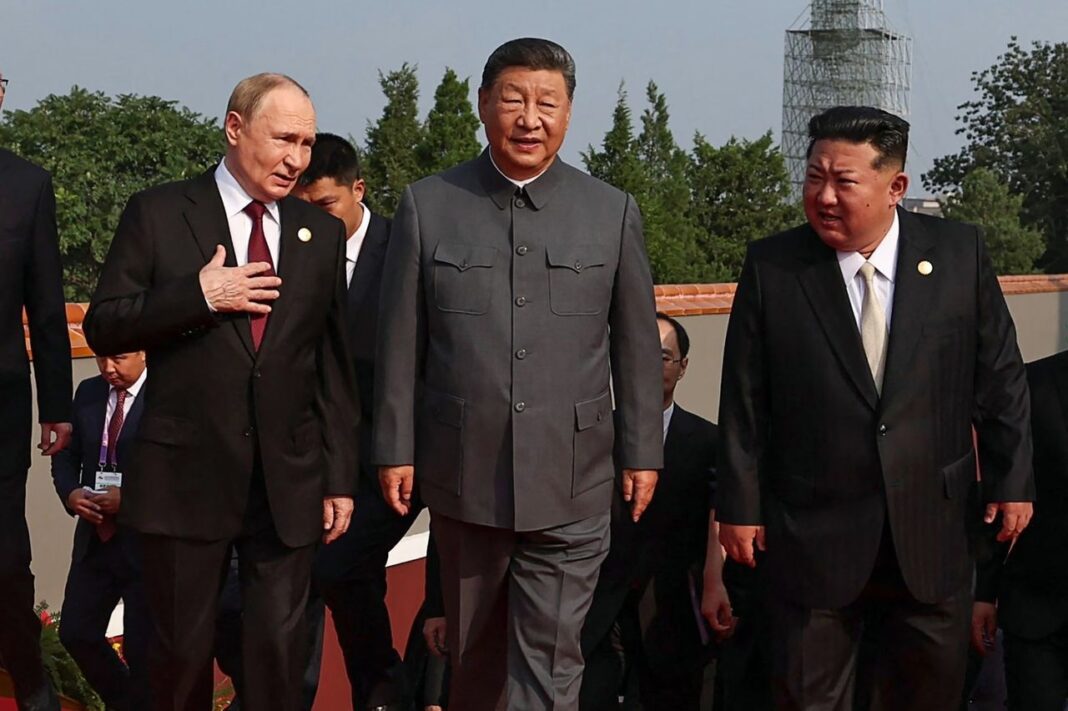China’s President Xi Jinping yesterday staged one of the most significant displays of military and political power in recent history, hosting a grand parade in Beijing that drew global attention and raised fresh questions about the balance of world order.
The military spectacle, held at Tiananmen Square to commemorate the 80th anniversary of the end of World War II, showcased cutting-edge weaponry, including hypersonic missiles, advanced drones, and underwater robotic systems. But the highlight of the day was not just the firepower—it was the striking image of Xi Jinping walking side by side with Russian President Vladimir Putin and North Korean leader Kim Jong Un, a symbolic gesture that observers have described as a direct challenge to Western dominance.

The parade was attended by leaders and representatives from 26 countries, many from the Global South, including Iran, Belarus, and Myanmar. Their presence underscored China’s growing diplomatic reach and its determination to consolidate alliances beyond the Western orbit. Analysts say the event was carefully choreographed to project Beijing’s message of solidarity with other powers at odds with Washington and its allies.
In his speech, Xi hailed China as “unstoppable,” stressing the country’s right to defend its sovereignty and global interests. The show of unity with Moscow and Pyongyang comes at a time when China faces mounting tensions with the United States over Taiwan, trade disputes, and South China Sea militarization.
For Putin, appearing alongside Xi reaffirmed Russia’s deepening reliance on Beijing amid Western sanctions and the prolonged fallout of the Ukraine conflict. For Kim Jong Un, the moment reinforced North Korea’s role as a pivotal—if unpredictable—actor in the emerging anti-Western bloc.
Critics in the West have described the Beijing gathering as an “Axis of Upheaval”—a loose but symbolic alignment of powers dissatisfied with the U.S.-led global order.
Western officials were quick to react. A spokesperson for the U.S. State Department condemned the event as “a theatrical display meant to distract from human rights abuses and economic coercion.” Meanwhile, EU foreign policy chief Josep Borrell called the parade “a troubling signal of militarized alliances that undermine global peace and stability.” NATO officials also warned that the symbolism of Xi, Putin, and Kim marching together could not be ignored, describing it as “a clear attempt to redraw the rules of international engagement.”
Yet some analysts argue the West’s alarm reflects broader anxieties about shifting power dynamics. As one European diplomat noted, “This is not just about missiles and parades, it is about a new narrative of global leadership where China positions itself as the alternative to the Western order.”
China has staged military parades in the past to mark national milestones, but yesterday’s event carried an unprecedented weight. In 2015, Xi presided over a massive parade for the 70th anniversary of Japan’s defeat in World War II, which showcased new missile systems but was attended by far fewer world leaders. In 2019, Beijing celebrated the 70th anniversary of the founding of the People’s Republic, unveiling the DF-41 intercontinental ballistic missile capable of striking the U.S. mainland. That parade was viewed largely as a domestic demonstration of strength. By contrast, the 2025 parade was not only a display of military modernization but also a rare stage for global diplomacy, with Xi flanked by Putin and Kim in what many have described as a theatrical declaration of a new bloc of power.

The parade is being interpreted as more than a commemoration of past wars. It is, in many ways, a declaration of intent. China, Russia, and North Korea standing together in defiance, and a reminder to the world that a new alignment of power is emerging, one that could reshape international politics in the years ahead.
Samuel Aina

